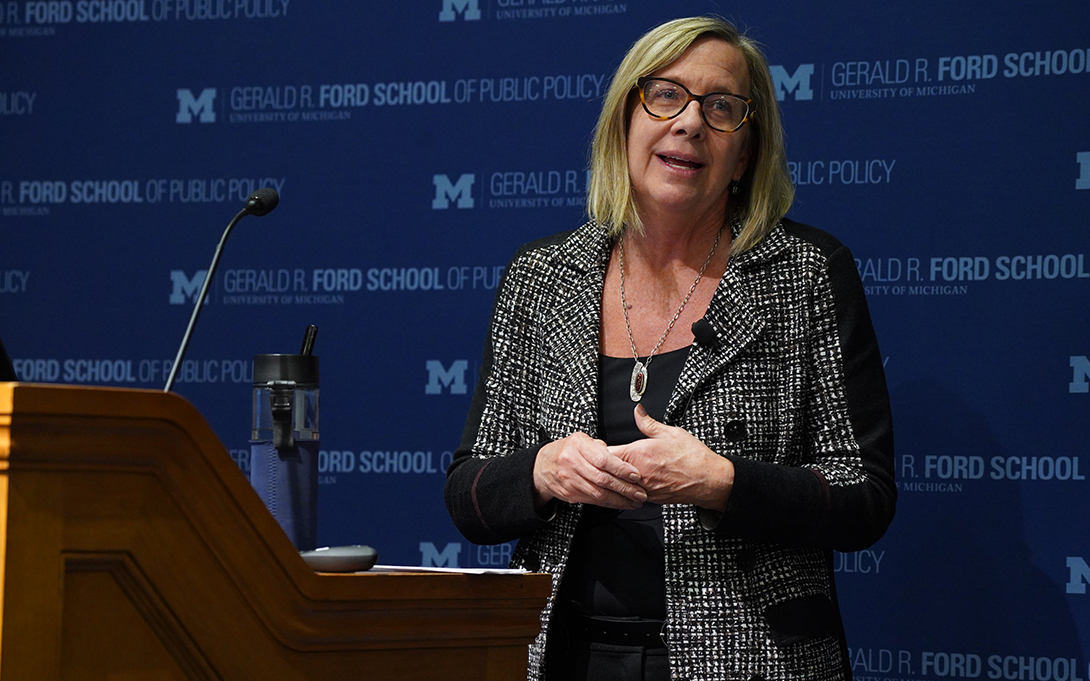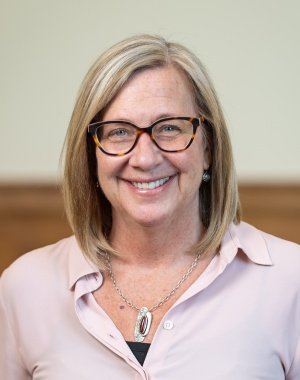
Paula Lantz, associate dean for academic affairs and the James B. Hudak Professor of Health Policy, is a social epidemiologist. She talks with S&H about COVID, inequality, and what’s to come.
State & Hill: We are 10 months into the global pandemic. Where do we stand?
Paula Lantz: From a U.S. perspective, it’s clear that we have done a terrible and shameful job of managing the pandemic. And we are reaping the consequences, both from a public health and an economic perspective.
What does the differential impact of COVID-19 on Black and brown people mean for public policy?
Very early on some people were saying the pandemic would be the great equalizer, that viruses don’t have bias or discriminate. But the reality is that the pandemic has shown in stark relief that health is socially, economically, and racially patterned in the U.S. If we don't focus on upstream policy, issues like employment and income insecurity, food insecurity, housing affordability, and the fractures in our education and public health systems, we will never stand a chance of surviving a pandemic and not have it exacerbate the social, racial and ethnic inequalities that already exist in our society.
What can public leaders do to navigate the politics around the pandemic moving forward?
If we don't get a handle on the virus, we won’t be able to open up the economy again without COVID case rates, hospitalizations, and deaths rising exponentially. Governor Whitmer and many other leaders in other states were from the outset doing the right things to get the transmission rate of the virus under control. But the basic things that need to be done to control COVID spread in communities have become so politicized in this country. The research is emerging very strongly, not only from the U.S., but also other places, that mask mandates and other public health interventions like density controls reduce the transmission rate of the virus and have a huge impact on its trajectory. And those things are going to need to continue to be in place until we have a pretty high level of vaccine uptake and distribution.
What are the consequences of inaction?
COVID is now the third leading cause of death in the U.S., behind only heart disease and cancer. We also now understand that a significant number of people with COVID experience a long journey of recovery that impacts their work, care for their families, and their quality of life. I'm part of the National Academy of Social Insurance Task Force, which will estimate the impact of COVID on our major social insurance programs like Social Security and Medicare into the future.
We don't yet know all of the short-term and long-term impacts of COVID-19 on population health and economic security but we already know that they're very big. And there are both direct and indirect impacts on people’s lives and wellbeing.
What can we expect from the Ford School going into 2021?
I am really proud of the ways in which the Ford School community has been navigating and staying focused on our mission through the pandemic and also through a tumultuous election. It's been a really unique and heartwarming collaboration between faculty, staff, and students. We have all come together and tried to figure out as best we can how to move forward, both with our educational mission and our important research and policy engagement work, while at the same time understanding how the pandemic is affecting everyone personally. We are all doing whatever we can to understand and lessen the impact of COVID, and to be leaders in the world in service to the public good.
Below, find the full, formatted Fall 2020 edition of State & Hill.

